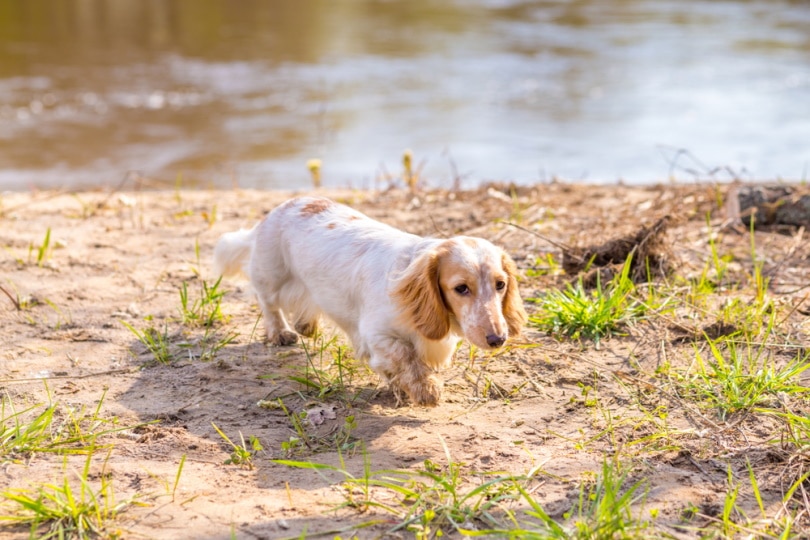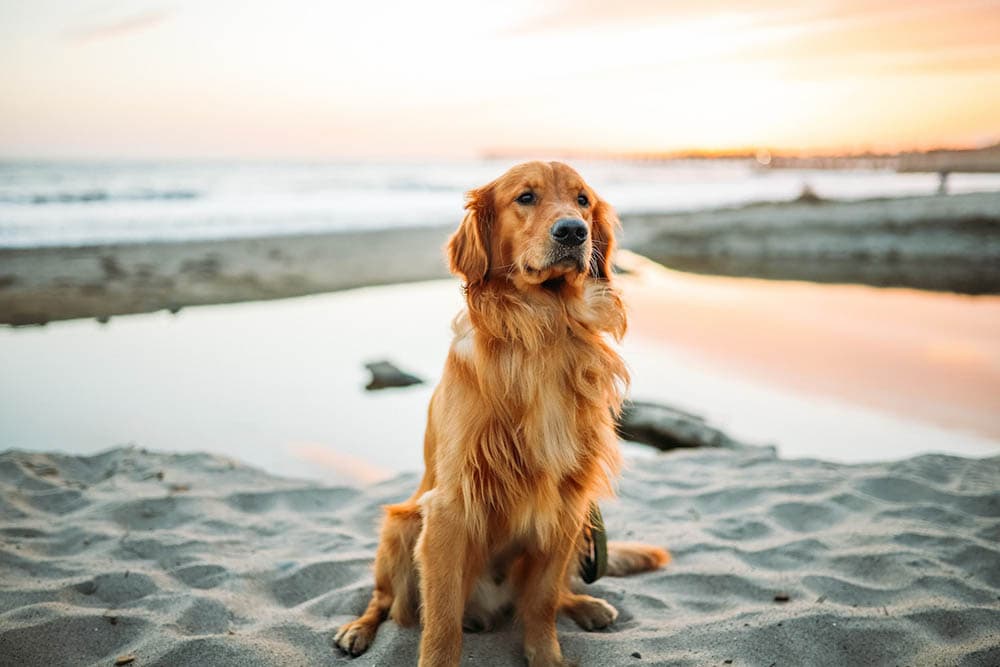Are Shiba Inus Aggressive? 4 Ways to Prevent Aggressive Behavior
Updated on
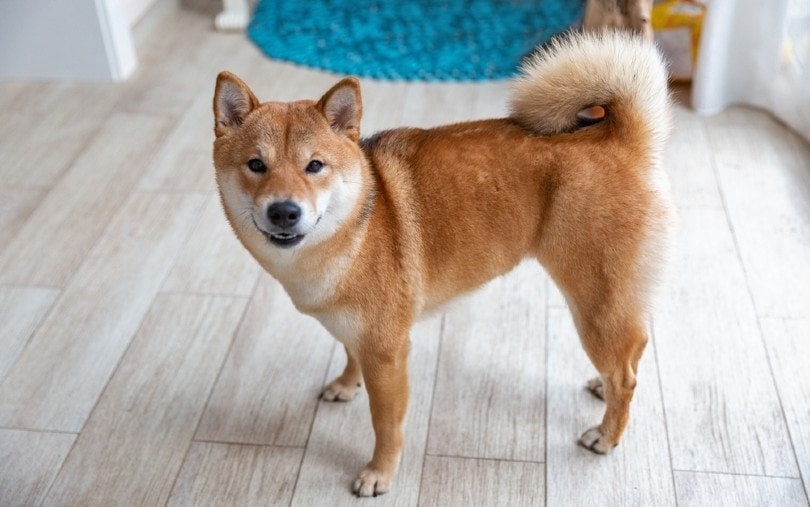
You’ll find lots of opinions online surrounding which dogs are aggressive and which ones aren’t. However, these opinions aren’t always evidence-based. Measuring a dog’s temperament can be difficult, and dogs can vary a lot within a breed.
However, one way that aggression is measured is via a temperament test. These tests check a dog’s temperament in various situations, typically with strangers, other dogs, and potentially scary objects (like umbrellas). Of course, to correctly measure the differences between different dog breeds, the test has to be the same.
Luckily, the American Temperament Test Society has very strict standards for temperament tests and keeps a record of pass/fail results for most dog breeds. According to these results,1 the Shiba Inu passes 69% of the time.
This is about 20% larger than a flip of the coin. Therefore, it appears that Shiba Inus aren’t aggressive most of the time. However, compared to other dogs, they do have higher aggression rates.
Shiba Inu Temperament Compared to Other Dogs
Shiba Inus have a temperament test pass rate of 69%. Let’s compare that rate to other dogs so that we can see how it stacks up.
The Akita has a pass rate of 88.9%, the Belgian Malinois has a pass rate of 94.1%, and the Beagle has a pass rate of 80%. In fact, the majority of dogs are in the 80s or 90s. Therefore, the upper 60s is significantly lower than average.
Exactly what counts as “passing” varies depending on the situation, environment, human nervousness, and dog’s health. Each tester is carefully trained and has at least 2 years of experience. Therefore, these tests are about as accurate as they come.
Based on the results of these tests, Shiba Inus are more likely to be aggressive than many other dogs.
Furthermore, you have to keep in mind that only those entering their dogs for testing are recorded in the ATTA’s database. Those that submit their dogs for testing are often more responsible dog owners, making them more likely to provide appropriate socialization and training. Despite this, 31% of these dogs still failed the temperament test.
Therefore, when you consider all the dogs that don’t get tested, it’s likely that many Shiba Inus are too aggressive to pass the temperament test.
Are All Shiba Inus Aggressive?
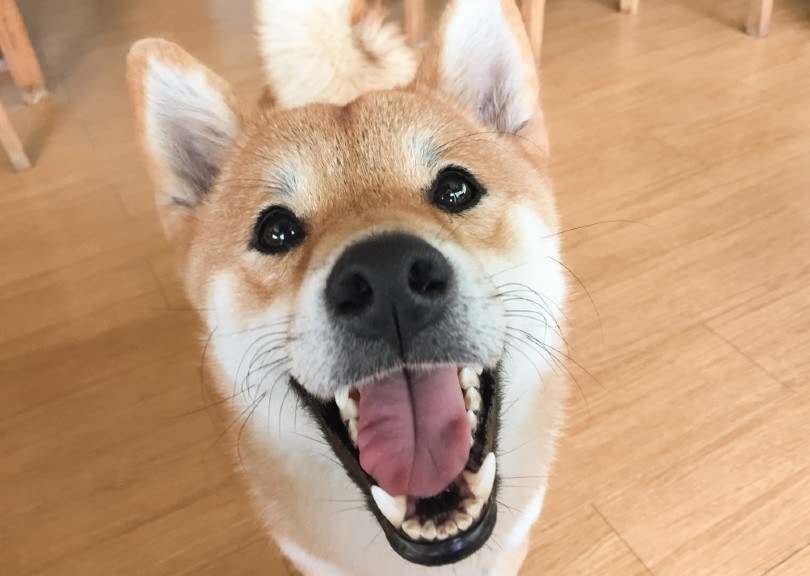
No, not all Shiba Inus are aggressive, and there is a lot you can do to prevent your Shiba Inu from becoming aggressive. The temperament test results do show that most Shiba Inus aren’t aggressive and react perfectly fine to strangers and new situations.
Shiba Inus need lots of socialization. They need to be socialized as puppies to many different people, animals, and environments. Otherwise, these things may cause fear later on—which may result in aggression. You can socialize with an older Shiba Inu, but it is much more challenging.
Shiba Inus can also be possessive of their food, humans, territory, and toys. These behaviors may lead to aggression in many situations. Therefore, training is necessary very early on to prevent possessiveness where possible. Furthermore, these canines tend to have a “no retreat” challenge. They’re very stubborn, which may prevent them from backing down. Instead, they may fight back against any perceived threat, leading to aggression.
Luckily, all of these things can be avoided with proper socialization and training.
The 4 Ways to Prevent a Shiba Inu from Being Aggressive
There are many ways you can prevent a Shiba Inu from being aggressive. All of these tasks can prevent any dog from being aggressive. However, because Shiba Inus may be more prone to aggression than other dogs, you need to take up these tasks with extra diligence.
1. Choose a Breeder Carefully
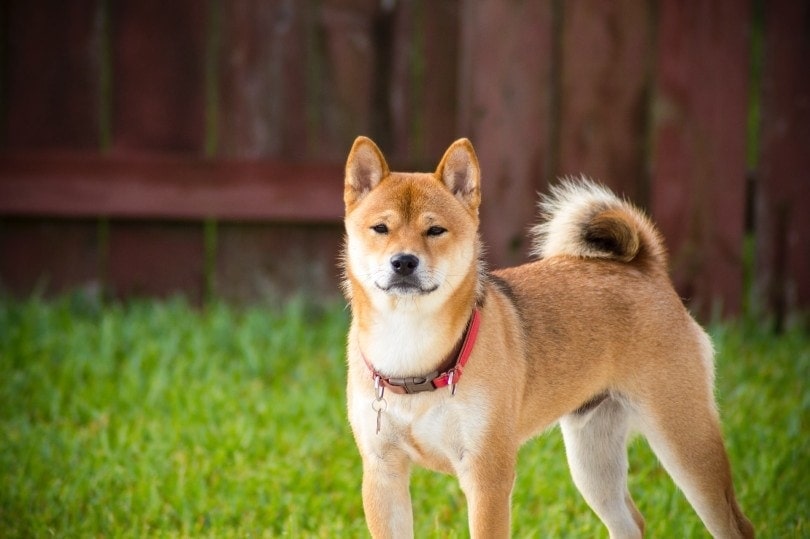
Firstly, you need to purchase your Shiba Inu from a good breeder. Temperament is somewhat genetic. Therefore, poor breeding can result in more aggressive puppies. Aggressive dogs should never be bred, even if they conform well to the breed standard otherwise.
There aren’t any genetic tests that currently help determine a dog’s temperament. However, you should speak to the breeder about how they choose dogs for breeding and about the temperament of the parents. Always meet the parent dogs if possible. Not all breeders have the male on-site, so the female may only be available.
If they don’t allow you to see the mother, that’s a red flag.
2. Early Socialization
You should socialize your Shiba Inu puppy as early as possible. These dogs need to be exposed to a wide range of different people and places. Take them with you wherever dogs are allowed. Puppy classes are highly recommended, as these provide socialization with other dogs and people in a strange (but safe) environment.
Socialization is a huge time commitment. It involves many weekly trips out of the house and into new places. Therefore, be sure you have this time to commit before you decide to adopt one of these dogs. They aren’t a breed that will develop fine without any socialization.
3. Training
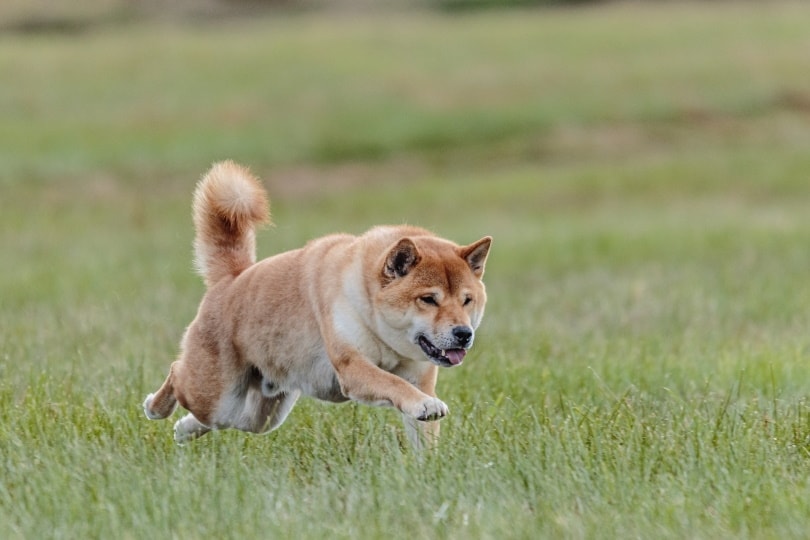
Shiba Inus can be stubborn, and this stubbornness can sometimes lead to aggression. Therefore, it works best to train them as early as possible. If you’ve enrolled your puppy in classes, then you’re already a step ahead on the training front.
However, classes aren’t enough. You also have to put in work at home. Taking your dog to classes will not get them trained unless you complete the recommended homework and work on your dog’s weak spots outside of class time.
Private lessons are often billed as a better alternative to group classes. However, this isn’t always the case. Most dogs benefit from group classes because they provide socialization and training. Private classes are only best for dogs that are too aggressive for group classes (and then, the goal should be to make them less aggressive enough for group classes to be effective).
Always use positive reinforcement training from Shiba Inus. They’re already prone to aggression, so fear-based training can make them even more aggressive. Be sure to ask what training a potential trainer utilizes, using specific questions (some trainers will bill their training as “positive” when it actually isn’t).
4. Exercise and Mental Stimulation
Bored and hyper dogs are more likely to become anxious and stressed. A dog that isn’t getting what they need isn’t going to thrive, which can lead to aggression. You should provide your Shiba Inu with plenty of exercise and mental stimulation each day. A Shiba Inu is much less likely to fixate on the stranger outside if they’re tired and happy.
These dogs are energetic and smart. Therefore, they require a lot of stimulation each day. Be sure you have the time to commit to them, or they may become more aggressive than necessary.
Conclusion
Shiba Inus are more likely to be aggressive than other dogs, sadly. Temperament tests show that they’re more likely to fail than other dogs, which is an indication that their temperament is a bit less sound.
However, there is a lot you can do to prevent Shiba Inus from being aggressive. For instance, socialization and early training can go a long way to making your puppy friendly and accepting of others. Most aggression is fear-based, and socialization helps your dog feel more comfortable around strangers and unusual situations.
Choosing a puppy from a good breeder is also important, as temperament has a genetic component. You want a breeder that considers the temperament and health of the puppy—and is not just trying to make money. Be sure to ask plenty of questions about how the breeder does business, as well as meet the parents of the puppy.
Featured Image Credit: Sergiy Palamarchuk, Shutterstock



